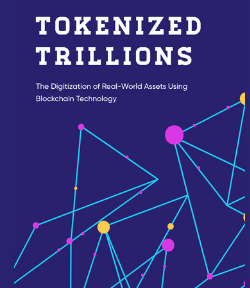
The Great European Stagnation: How the Continent Fell Behind the New Economic Order
Europe’s Lost Decades.
In the silence between Washington’s barked commands and Brussels’ obedient compliance, a strategic vacuum has grown- one that has left Europe economically exposed, technologically outpaced, and politically disoriented. While the United States launches economic salvos under the guise of global rebalancing and China races ahead in critical industries, Europe is caught flat-footed – still debating tariffs and toying with austerity-era investment logic.
This is not merely the story of missed opportunities. It is a chronicle of structural decline, institutional cowardice, and a failure to grasp the tectonic shifts shaping the 21st century.
Vassalage in a Multipolar World
Europe’s first failure is strategic: acting as a vassal to a declining hegemon rather than asserting its own geopolitical agency. The EU’s decision to impose tariffs on Chinese solar panels – at Washington’s urging – highlights this. Ostensibly about market fairness, the tariffs were in fact economic self-harm. China produces solar panels at world-beating scale and prices, while Europe faces a climate and energy crisis that demands affordable green infrastructure. Why cut off the supply of critical technology?
The tariffs did not punish Beijing – they punished Europe’s own citizens.

This kind of misalignment reveals how little independent thought animates Brussels’ decisions. Europe is enacting trade policies as if it were still anchored to a Cold War alliance rather than navigating a fragmented, multipolar economic world. Instead of opening communication with China to co-develop energy infrastructure and digital systems, Europe’s policymakers prefer the moral superiority of regulation while clinging to outdated transatlantic loyalties.
Investment Paranoia and the Great European Stagnation
Europe has not just failed to assert its global position – it has also failed to invest. The continent suffers from a chronic annual investment shortfall of €600–700 billion. Decades of fiscal conservatism, German-dominated debt politics, and an obsessive fear of mutualized liabilities have crippled its ability to build the future.

Compare this with China. In 2000, Germany was the global leader in solar panel production. Today, Chinese firms like LONGi and JinkoSolar dominate the industry. Why? Because China invested – aggressively, consistently, and strategically. Europe regulated, hesitated, and outsourced.
Electric vehicles tell a similar story. Chinese companies like BYD are producing EVs that outperform European counterparts on affordability and innovation. Europe’s response? Probes into unfair subsidies and pleas for “level playing fields” – a euphemism for “we lost.”
The solution isn’t more regulation or moralistic posturing. It’s bold, centralized investment.
Imagine if the European Investment Bank were given a mandate to issue €600 billion in bonds annually for five years, backed by the ECB. These bonds – effectively risk-free if supported by secondary market purchases—could turbocharge investment in AI, green energy, chip fabrication, and pan-European infrastructure.
Instead, Europe squabbles over pennies in pandemic-era recovery funds and directs fresh capital into tanks and torpedoes.
Technological Irrelevance and the Cloud Capital Gap
There is no clearer indicator of Europe’s strategic failure than its complete absence in the digital economy. For every American tech giant – Google, Apple, Amazon – China has a superior or equivalent counterpart – Tencent, Huawei, Alibaba. Europe? Nothing. What nascent success it had – Spotify, Skype, Skype’s encryption protocols – was sold off, often to U.S. buyers.

European leaders love to threaten Silicon Valley with a “digital tax,” but they know it’s a bluff. If YouTube, Meta, and Apple were to cut services to the continent for even a week, the political fallout in Brussels would be existential. Europe has ceded not just its data but its sovereignty in the digital sphere.
Cloud capital – the real driver of modern wealth and power – does not exist in Europe. In a world where artificial intelligence, platform monopolies, and cross-border digital payments define geopolitical leverage, the EU is merely a consumer with no bargaining power.
A Digital Wallet Revolution – Never to Be
Consider one radical but simple solution: the European Central Bank could provide every citizen with a digital wallet. This would serve as a secure, interest-bearing alternative to traditional bank accounts, open cross-border payment rails, and democratize access to the ECB’s overnight rates. It would challenge the cartel-like dominance of commercial banks that underpay savers and overcharge borrowers.
China already does this. Europe, again, dithers.
Why? Because the banking lobbies in Frankfurt and Paris would sooner decapitate any politician than let go of their monopoly on payment systems. ECB-issued wallets would be a direct threat to their bottom line – and Brussels lacks the political will to stand up to them.
Europe’s False Sovereignty and the German Exit Option
The elephant in the European Council chamber is Germany. Its financial elite have never fully accepted the euro. They’ve tolerated it – so long as they maintain the latent option to exit. This explains their visceral opposition to common debt or a true fiscal union.

Unlike deficit countries (Italy, France, Greece), Germany gains power from the implicit threat of leaving. A union without shared risk is a union without solidarity. And without solidarity, no grand investment program can ever take root.
Reclaiming the Future Or Accepting Irrelevance
What’s at stake here is more than solar panels or car factories. It is Europe’s role in the emerging global order.
If Europe continues to act as a passive observer – responding, not leading; regulating, not building; subordinating, not strategizing – it will become the “stupid continent” not because of lack of intellect, but because of systemic cowardice.

It must break from Washington’s shadow, invest like Beijing, innovate like Silicon Valley, and govern like a sovereign bloc. This means building new institutions, empowering democratic economic planning, and anchoring legitimacy in citizen-driven technological renewal.
Europe has the tools. It has the talent. It lacks only the will.
Until that changes, the continent will remain exactly what it has become: a museum of the 20th century watching the 21st unfold through frosted glass.
Europe must stop waiting for permission – from Washington, from Berlin, from banks, or from Brussels bureaucrats. The time for strategy is now. The alternative is decline.






